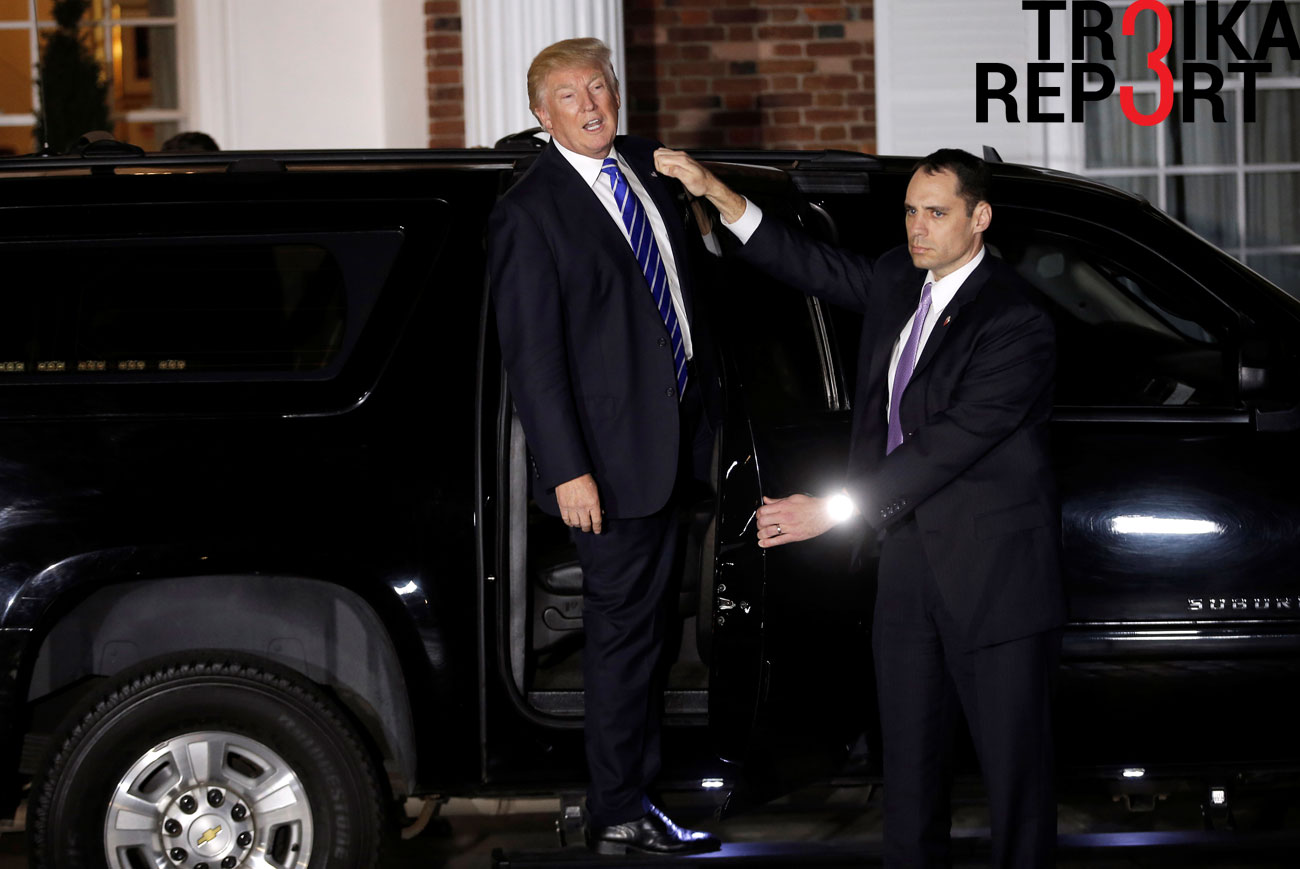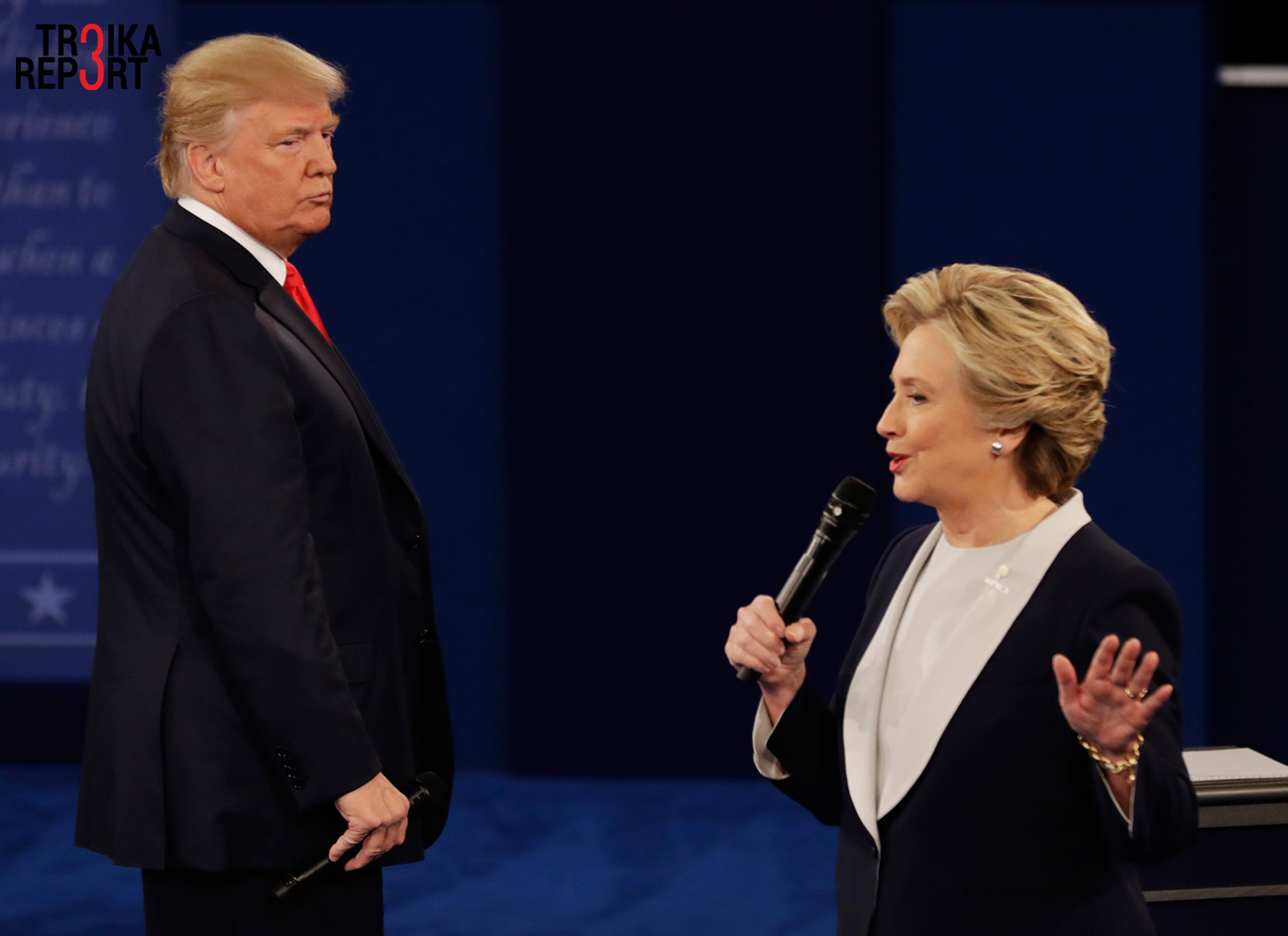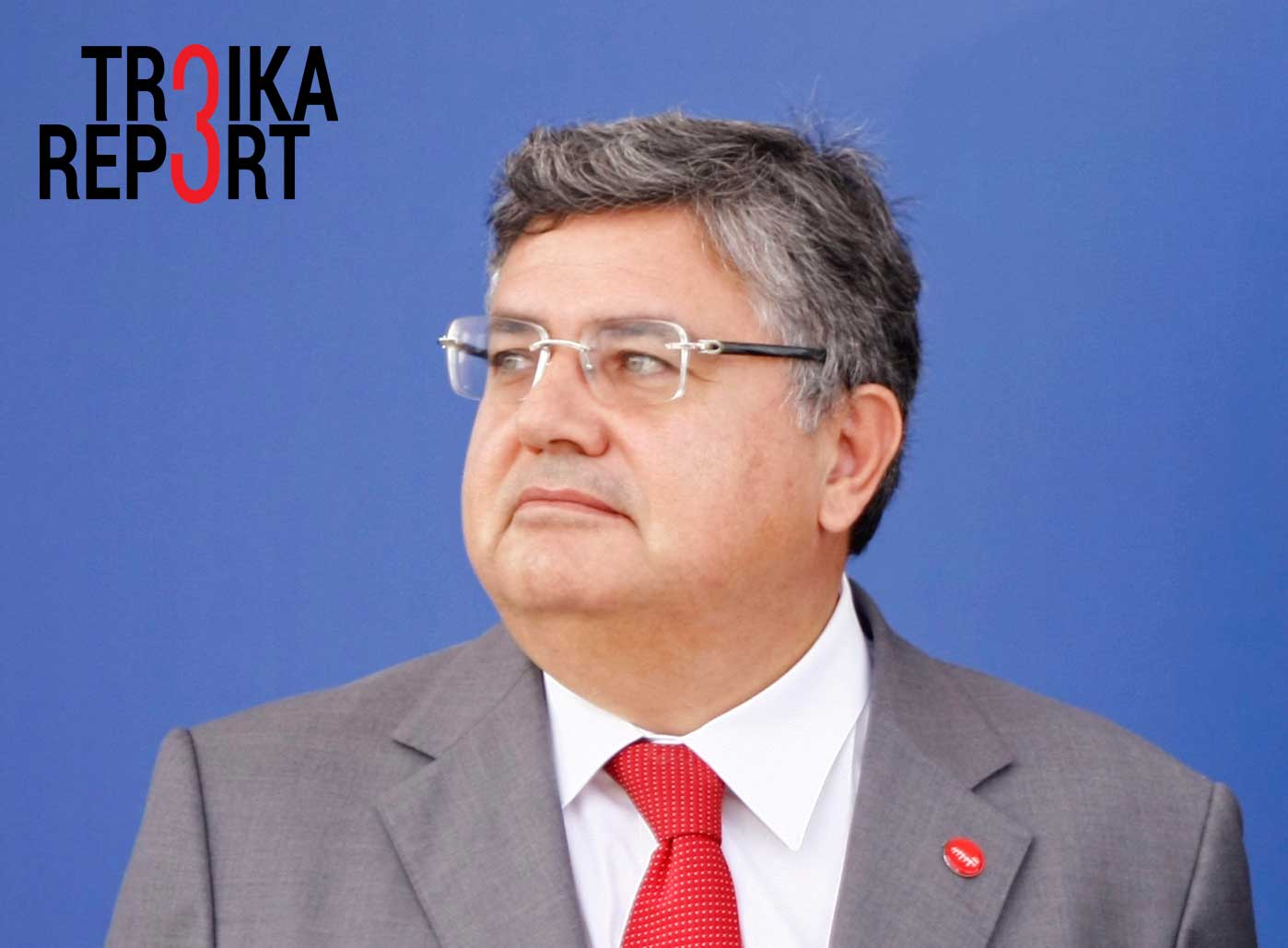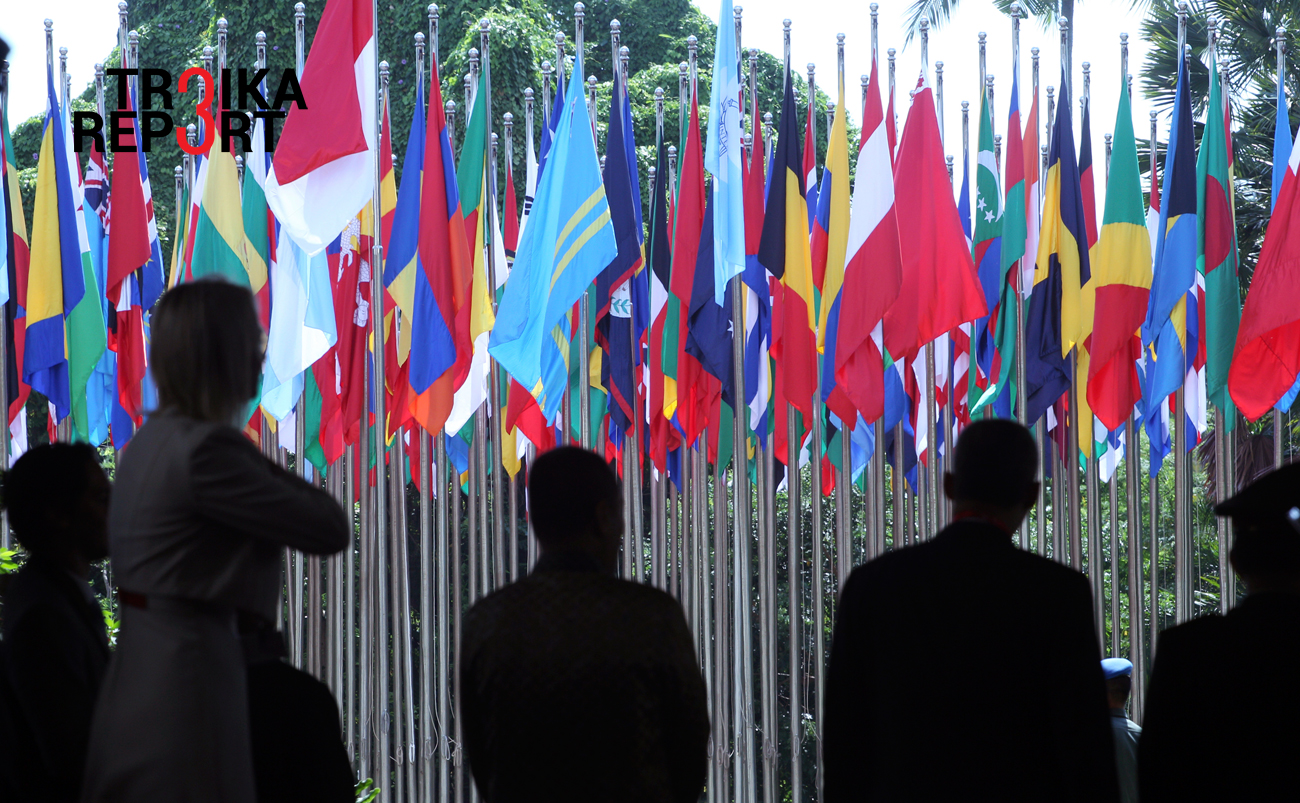Will Trump take on Wall Street – and if so, will Russia benefit?

While promising to re-industrialize America and bring back jobs that have fled to China and Mexico, Trump made it clear he favors protectionism as an effective tool.
ReutersThe vague nature of the statements Donald Trump made on the election trail mean that the details of how exactly the 45th President of the United States will handle the multitude of economic woes at home remain unclear, provoking Russian analysts to forecast several scenarios.
One of the key elements in the projections put together by three authors of a report by the Moscow-based Institute for Globalization and Social Movements (IGSO) is the inevitability of Trump’s war against the banks and the Federal Reserve System.
Will Trump take on the financiers?
While promising to re-industrialize America and bring back jobs that have fled to China and Mexico, Trump made it clear he favors protectionism as an effective tool. Trump is also gambling on stimulating internal demand and this will invariably require restructuring of the U.S. national debt, which has surpassed $19 trillion.
Such restructuring is unacceptable to Wall Street, just like Trump’s stubborn defiance of NAFTA and conclusion of new trade bloc agreements like the Transatlantic Trade and Investment Partnership (TTIP) and the Trans-Pacific Partnership (TPP). Since the aspirations of the U.S.-based transnational corporations were focused on setting the new rules of engagement, favoring big business, Wall Street would have been one of the main beneficiaries.
But this does not fit into the president-elect’s long-term goal of resurrecting the hardworking America of industrial ingenuity as opposed to that run by financial moguls. Without downsizing the financial oligarchy Trump would fail in his campaign promise to “Make America Great Again.”
Back in 2008, the financial bosses and Wall Street speculators commanded a 70-percent share of redistribution of profits in the United States. The ensuing full-fledged economic crunch has seen that share fall to 30 percent. Nevertheless, it is still disproportionately big and this is hardly admissible for the American public given the complicity of the banks, with their mind-boggling manipulations of derivatives, in the toxic 2008 mortgage crisis.
Trump has been conspicuously reserved in his criticism of the bankers and the transnationals, so far. He has yet to draw the “big iron” on his hip, but the duel is in the making.
All the key stock market indicators this year have exceeded the pre-crisis 2007 level. At the same time, due to a pro-banking policy by the Federal Reserve System, the stock exchange was quite comfortable in 2016 despite corporations’ profitability nose-diving and debts rising to levels typical of a recession.
This is unacceptable to Trump, who has been calling for an investigation to be conducted into the Fed’s operations.
Cold peace instead of hot war
So, is a war between Trump and Wall Street imminent? Not necessarily, according to Vasily Koltashov, chief economist at the Moscow-based Institute for Globalization and Social Movements, and one of the three authors of the report quoted earlier.
“Trump has run against the Republican party bureaucracy. He will have to rally enough support, especially in the U.S. Congress, to push through his economic policy… There are signs that Wall Street lobbyists are already engaging members of the Trump team. Trump could eventually soften up. Yet Trump has a powerful ally: the burst of the financial bubble. There is a growing consensus among the elites that the American economy cannot be governed by old methods.”
Dr. Vadim Kozyulin, a senior research fellow at the PIR Center, a Moscow-based independent think tank, supports this viewpoint and believes Trump might strike a compromise deal.
“No, I do not think he is an antagonist to the financial moguls. It has been noted that whenever new U.S. presidents introduced additional taxes, the final outcome amounted to rich people becoming richer and poor people poorer. This time Trump promises to lower taxes. We’ll see how it goes.
“What seems to be more certain is that he will have trouble finding a common language with the Washington political establishment. But usually the fine-tuning of new administrations takes from six to eight months.”
Does Trump really represent the “real sector,” the one producing goods and services as opposed to those who make money out of money? Dr. Maxim Suchkov, editor of Al-Monitor’s Russia-Mideast and member of the Russian International Affairs Council, provided me with the following explanation.
“I think Trump truly represents himself and doesn’t really owe his victory to any particular interest group. At the same time, once-powerful industrial groups associate their own economic revival and revival of their political influence with his administration.
“At the end of the day I believe Trump will cut deals with the so called ‘real sector’ as natural allies of the Republican Party. He has already introduced some ideas that would satisfy the industries, namely a potential revision of the Paris climate treaty and the Keystone pipeline, as well as lessening dependence on foreign oil.”
– Will Wall Street and industrial America cooperate during the Trump presidency?
“From the standpoint of America’s national interest it does make sense for the two groups to cooperate. In the last few years, however, there has been a split between the two groups – on the one hand – traditional drivers of American economy: energy companies, car industries and the industrial complex in general; on the other hand, the financial sector, bankers and hi-tech industries, California-based startups. They have advocated different interests, including those associated with the market and earning profits, thus pursuing different development trajectories for the U.S.
“The gap is real and I don’t think Trump will be able to unite them. In fact, this is something that will be there for quite some time and may well be an issue at the 2020 presidential election.”
Remembering 11110
However, it remains unlikely that Trump will take up arms and challenge the supremacy of Wall Street. One of the deterrents would be the ominous example of the presidential decree signed by John F. Kennedy.
President Kennedy issued Executive Order 11110, empowering the Treasury Department to create and issue currency without going through the privately owned Rothschild Federal Reserve Bank. Some American observers link this move with Kennedy’s assassination in Dallas in 1963, though to be fair, this has never been substantiated and is confined to the domain of conspiracy theories.
Nowadays, issuing a similar decree would be equal to nationalizing the Federal Reserve System. Trump would not dare do this, unless the bubble bursts and devastates Wall Street, ruining fortunes and sending the U.S. dollar through the floor.
What’s in store for Russia?
Trump’s presidency, as the newly formed common wisdom claims, contains both hazards and opportunities for Russia. On the one hand, it is likely that the change in the U.S. leadership might lead to a reset in political dialogue.
“Judging by external ‘properties’ Trump resembles [former Italian Prime Minister Silvio] Berlusconi: a businessman and a populist. It might be easier for Putin to find common ground with Trump. Putin has a key to dealing with business people who do not talk abstract notions but do things,” says Vadim Kozyulin.
Vasily Koltashov, on the other hand, warns that there are hidden dangers and that partnership in trade, investment, and hi-tech cooperation is far from certain.
“If Trump succeeds in bringing his reforms to fruition, it will have, as one of the consequences, a fall in energy prices. This will adversely affect Russia,” he says.
“Moreover, if Trump manages to revive American industry and thus repatriate profits from manufacturing and exporting goods, China will plunge into crisis. This will also negatively affect Russia. So, either way, Trump’s ‘reset’ of the U.S. economy carries the seeds of another global crisis.”
In sum, reading the tealeaves in the cup of the as-yet inaugurated U.S. president is a daunting and unrewarding task. There are far too many factors, actors, and conflicts of interest, as well as plenty of unknowns.
Read more: From Putin and Berlusconi to Soviet nostalgia and Greater Eurasia>>>
Subscribe to get the hand picked best stories every week
All rights reserved by Rossiyskaya Gazeta.
Subscribe
to our newsletter!
Get the week's best stories straight to your inbox



